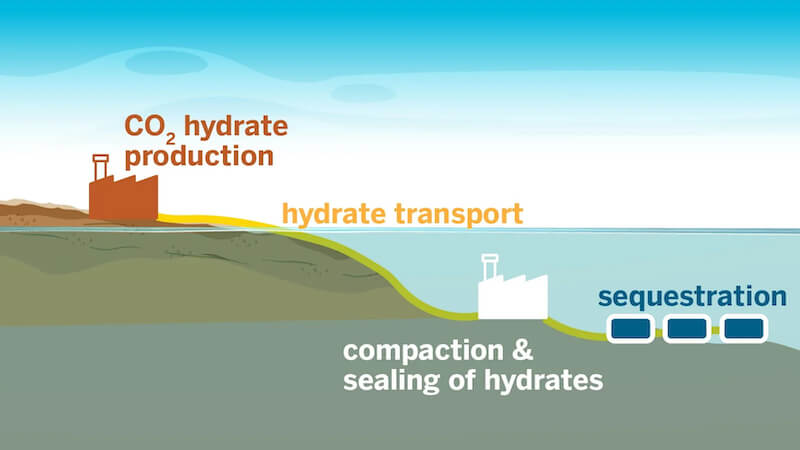Researchers have developed a new technique to freeze carbon dioxide and release it into the ocean. The method is said to be more efficient and safer than similar storage methods.
Scientists at the University of Texas at Austin newly Developing an advanced method for storing carbon dioxide. This would make it possible for the first time to convert carbon dioxide (CO2) more quickly and safely into water-like forms for storage in the ocean.
The method uses no chemical additives and is said to be much more efficient than existing methods. Instead of injecting carbon dioxide into underground reservoirs, the research team converted it into stable ice-like structures.
It is supposed to be stored in the ocean. Thus, this technology could make a significant contribution to reducing carbon dioxide levels in the atmosphere and combating climate change.
In the Ocean: Efficient CO2 Storage Eliminates Common Hazards
Current methods of storing carbon dioxide rely on storing carbon dioxide in underground reservoirs. But injecting the gas into our soil poses many risks. These include carbon dioxide leakage, groundwater contamination and seismic hazards. Because the geological conditions for this method are lacking in many areas.
A new technology called hydrate formation addresses these challenges and offers an alternative solution. By speeding up the process six-fold and eliminating the use of chemical additives, the research team has made large-scale ocean CO2 storage simple and safe.
Magnesium acts as a natural catalyst.
The researchers used magnesium as a catalyst for their method, eliminating the need for chemical accelerators. The technique works seamlessly with seawater and does not require complex desalination processes, ultimately making it easier to implement.
The stable thermodynamic conditions at the bottom of the sea protect the hydrates from decomposition, making their safe, long-term storage possible. Governments around the world could use this method, making CO2 storage accessible to all coastal states.
The rapid formation of hydrates also has potential for other applications such as desalination, gas separation and gas storage. The researchers have already filed patents for the technology and are considering setting up a startup to commercialize it.
Also interesting:

“Certified tv guru. Reader. Professional writer. Avid introvert. Extreme pop culture buff.”







More Stories
Samsung Quantum Dot TV: Art meets technology
Pitch: €56m for energy startup Reverion
Plastoplan: Plastics for Energy Transition